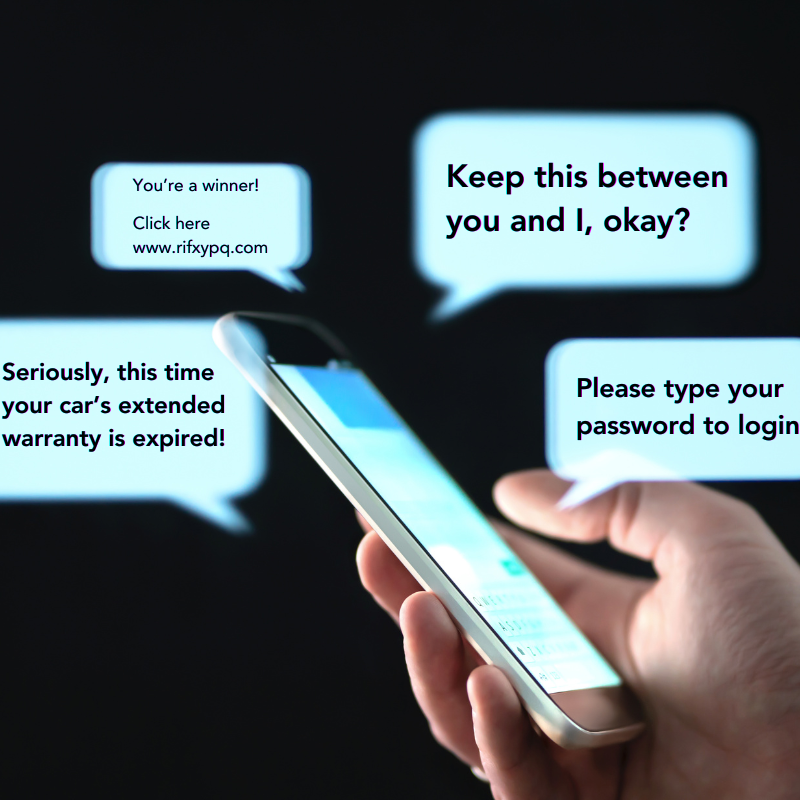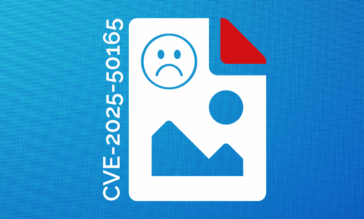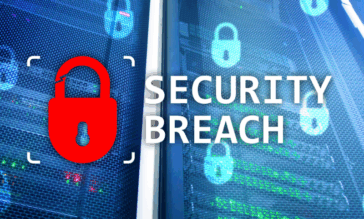The Big Telecom Breach: Salt Typhoon and the Risky World of SMS

First They Came for the Carriers, Then They Came for Our Texts
Imagine waking up to find that the very infrastructure powering our daily communication—our calls, texts, and internet connections—has been infiltrated. Recent cyberattacks targeting US telecommunications networks and ISPs have made this scenario a chilling reality. Millions of individuals and organizations now find themselves vulnerable to data breaches that threaten privacy, national security, and business operations.
While we at Votiro don’t sanitize or mask text messages, as a Data Detection and Response solution meant to keep threat actors out of the metaphorical castle that facilitates them, we felt that this security threat hit a little too close to home to ignore.
So, Who Did This and Why?
The trouble starts with Salt Typhoon, a Chinese state-sponsored hacking group with deep ties to military and government objectives. Their primary focus is cyber-espionage, targeting critical infrastructure such as telecommunications networks and ISPs to gather intelligence on individuals, corporations, and government officials. Unlike ransomware groups seeking financial gain, Salt Typhoon is driven by strategic objectives, using advanced techniques to breach systems and remain undetected for extended periods of time.
What Exactly Happened?
In a chilling display of cyber-espionage, Salt Typhoon was linked to a series of attacks against some of the largest ISPs and telecommunications providers in the United States. The breaches targeted industry giants like Verizon, AT&T, Lumen, Charter Communications, Consolidated Communications, and Windstream, exploiting vulnerabilities in their networks to access unencrypted communications. By infiltrating these critical systems, Salt Typhoon intercepted sensitive data, including text messages, voicemails, and phone calls, leaving millions of users vulnerable to data theft and surveillance.
National security sources confirmed that Salt Typhoon has breached nine major US telecom providers, showcasing its ability to exploit gaps in telco network security. And if the scale wasn’t staggering enough, the timeline of the operation surely is. It’s been reported that Salt Typhoon’s infiltration began as early as 2022, illustrating how much time the attackers were able to collect highly sensitive information without so much as raising a red flag. These attacks don’t just represent a technological challenge—they underline the potential for massive intelligence collection on US citizens, government officials, and businesses.
The response from the government and private sector has been swift. The FBI, NSA, and CISA have issued urgent warnings and released detailed mitigation strategies to help companies shore up their defenses. Legislative efforts are also gaining momentum, with Senator Ron Wyden proposing a telecom security bill to close systemic vulnerabilities.
Beyond domestic actions, the US Department of Treasury has taken a strong stance by sanctioning Chinese entities linked to cyber espionage, signaling a broader strategy to hold perpetrators accountable. As the dust settles, these measures highlight the gravity of the situation and the urgent need for robust defenses to counter such sophisticated adversaries.
Why Should People Be Worried?
The recent wave of attacks by Salt Typhoon is more than a technical issue—it’s a reminder of how deeply cyber threats can infiltrate our lives, from individual privacy to national security. The risks are profound and multifaceted, affecting individuals, organizations, and the broader fabric of society. To put it in castle-defense terms, enemies that are able to breach the gates don’t just seize the castle, they take over the entire village. This means security must be focused on the target that holds all the keys.
Risks to Individuals
For everyday users, the interception of personal communications is a direct invasion of privacy. Sensitive data—like financial information, private conversations, or healthcare details—could fall into the wrong hands. Once compromised, this data can be exploited for blackmail, fraud, or targeted phishing campaigns, leaving individuals vulnerable to emotional and financial harm.
Risks to Organizations
For businesses, breached communications could expose trade secrets, intellectual property, and critical business strategies, giving attackers or competitors a dangerous advantage. Beyond the immediate fallout, such breaches increase an organization’s vulnerability to broader cyberattacks, like ransomware campaigns or disruptions to its supply chain. Again, this leaves individuals open to damage as their data is compromised at the organizational level. Last but not least, the reputational damage alone could have lasting consequences, eroding trust with customers, partners, and stakeholders.
Broader Implications
The implications of these attacks extend far beyond individuals and organizations. Salt Typhoon’s targeting of telecommunications networks undermines public trust in the very infrastructure we rely on for connectivity and communication. This erosion of confidence could disrupt the functionality of entire industries and weaken the social contract between citizens and the services they depend on.
More alarmingly, these breaches pose a significant threat to national security. By intercepting high-value communications, Salt Typhoon gains access to intelligence that could be leveraged for espionage, geopolitical manipulation, or cyberwarfare. According to reports, Salt Typhoon accessed private portals used by telephone companies to provide court-ordered phone numbers pursuant to investigations — the same portals used by U.S. intelligence to surveil foreign targets inside the United States. The ability to monitor government officials, defense contractors, and other critical targets underscores the far-reaching consequences of these attacks.
What Does the FBI Suggest?
The FBI has actively communicated about a critical vulnerability in modern communication: standard text messages (SMS) are inherently insecure, lacking encryption and leaving them susceptible to interception by advanced cyber-espionage groups like Salt Typhoon. By exploiting these unsecured channels, Salt Typhoon has demonstrated how easily sensitive information, such as financial data or private conversations, can be accessed.
The FBI urges individuals and organizations to transition to end-to-end encrypted messaging apps like Signal or WhatsApp, which safeguard communications from prying eyes. Beyond messaging, the FBI stresses the importance of robust cybersecurity measures, such as regular updates, strong encryption policies, and proactive data protection solutions. For the nine telecommunication companies identified in the attack, proactive solutions like Data Detection and Response (DDR) can stop threat actors at the door, leaving them with no way to infiltrate networks in the first place.
The lesson from the FBI warning and Salt Typhoon’s activities is clear: the tools and strategies we use to communicate and share data must evolve to match the sophistication of modern threats.
Data Protection Against Threats Like Salt Typhoon
Nobody is immune to major cyber-espionage campaigns like Salt Typhoon. However, the right data security can make it much more unlikely. Protecting against these risks requires a proactive approach that leverages advanced technologies and informed behaviors.
For Organizations
Enterprises are prime targets for groups like Salt Typhoon, making it imperative to fortify critical infrastructure so that threat actors are unable to compromise the users that rely on them. This begins with hardening telecom networks through secure tools and continuous monitoring to detect and address suspicious activity before it escalates.
Layered security measures are also essential. Solutions like Votiro’s advanced file sanitization technology are critical in neutralizing file-based threats, ensuring that any files entering the organization are free of malicious elements.
Proactively addressing vulnerabilities through regular system updates and patches further reduces the attack surface, closing gaps that attackers often exploit.
For Individuals
On a personal level, individuals can take meaningful steps to protect themselves against cyber threats. The first priority is avoiding SMS for sensitive communications, which remains inherently insecure. Switching to end-to-end encrypted messaging platforms also ensures private conversations stay private.
Caution is equally important. Be wary of unsolicited messages, unexpected links, or attachments, which can be vectors for phishing or malware attacks. Staying informed about emerging cyber threats and following advice from cybersecurity agencies can help you stay ahead of attackers.
Securing Organizations Against Future Attacks
Salt Typhoon has exposed vulnerabilities in critical infrastructure and personal communication channels, to say the least. This campaign is likely not the last of its kind and the damage done is still being discovered. Which means, there is a pressing need for security measures that detect threats and proactively mitigate them before they can reach the cause-harm stage.
As part of this strategy, Votiro’s Zero Trust Data Detection and Response (DDR) platform sanitizes sensitive data and neutralizes threats at the file level, empowering organizations to stay one step ahead of even the most advanced cyber adversaries. And that’s just one half of the equation. Votiro DDR can help organizations remain secure even in the event of private data exfiltration. With Active Data Masking, telecom giants and SMBs alike can share and store sensitive info (PII, PCI, PHI) with the knowledge that only pre-authorized users can view critical details within documents.
Whether safeguarding communications or fortifying telecom infrastructure, Votiro provides an essential layer of protection that ensures security without disrupting workflows. Assess your current security measures and explore how Votiro can enhance your defenses today.
You can also try Voitro DDR free for 30 days to see firsthand how proactive solutions can secure your organization against threats like Salt Typhoon.
News you can use
Stay up-to-date on the latest industry news and get all the insights you need to navigate the cybersecurity world like a pro. It's as easy as using that form to the right. No catch. Just click, fill, subscribe, and sit back as the information comes to you.
Sign-up Here!
Subscribe to our newsletter for real-time insights about the cybersecurity industry.



